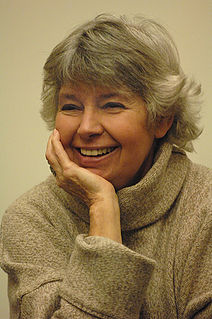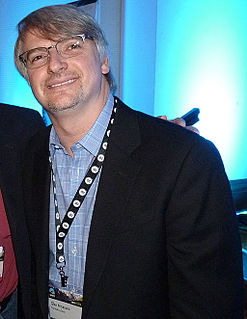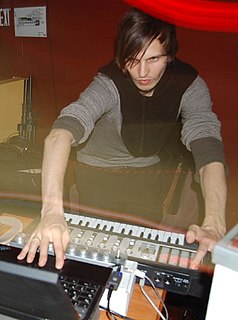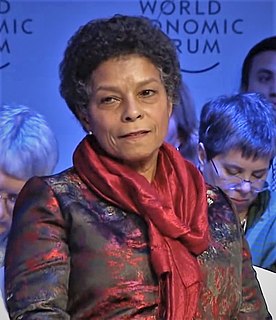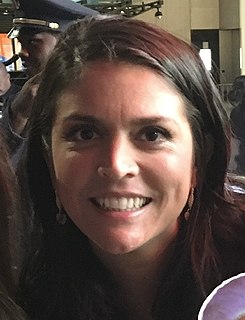A Quote by Stewart Butterfield
There's a lot that's wrong with the way we work - bad habits that develop around control of information, people hoarding information as a means of preserving their own power. When you're using Slack, everyone can see what's going on because the default mode is public.
Related Quotes
Normally if you add information to information, you have more information. In case of my art, I destroy information, I would say, because the image is disturbed by the writings. In a way, they become pure imagery. For me it's really fun because it's an idealistic approach to images, to just play around with information and see what's happening.
Mike Flynn is a fine person, and I asked for his resignation. He respectfully gave it. He is a man who there was a certain amount of information given to Vice President Mike Pence. And I was not happy with the way that information was given. He didn't have to do that, because what he did wasn't wrong - what he did in terms of the information he saw. What was wrong was the way that other people were given that information, because that was classified information that was given illegally. That's the real problem.
The Internet has been an invaluable acquisition. I wonder how we would do without it. Information can be sent from one country to the other within the space of minutes, crossing channels, crossing oceans, crossing continents. But still, we can't compete with the might and power and wealth of those who dominate, control, and own the means of the production of information today.
I like the process of giving control away [at the recording]. When you give it up to people, it's another intelligent organism that digests your information completely differently from how a machine digests information. It's like you're on a sailboat, and every time you can find out how to better adjust [the sail] to make it more precise. And it's interesting to see that the musicians have their own ideas. To use their intuitive power with their knowledge that they incorporate into the music. This is the moment you give away control, you give it to someone else's intuition.
You could reduce people's fears if you gave them some useful information before things went wrong. It's really important to create a sense of confidence in the public in their own abilities before a disaster because they're the only ones who are going to be there. No one's going to help you for at least 24 to 72 hours. So it would be good to know more about it.
Electronic medical records are, in a lot of ways, I think the aspect of technology that is going to revolutionize the way we deliver care. And it's not just that we will be able to collect information, it's that everyone involved in the healthcare enterprise will be able to use that information more effectively.
As recently as the '70s, people were forced to see information that they didn't agree with in newspapers and the like. Now there is so much information you really can build your own walled garden that just has the stuff that reinforces your view. I think it applies to all of us. People are really going into these separate camps, and that's the big social challenge in this age of too much information. How do we crack that and create a common dialogue?




